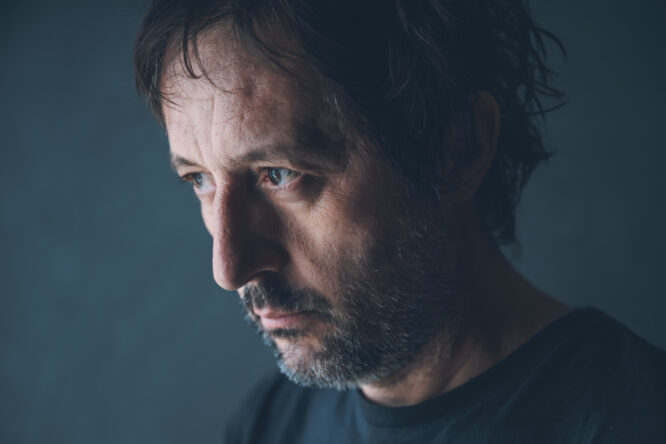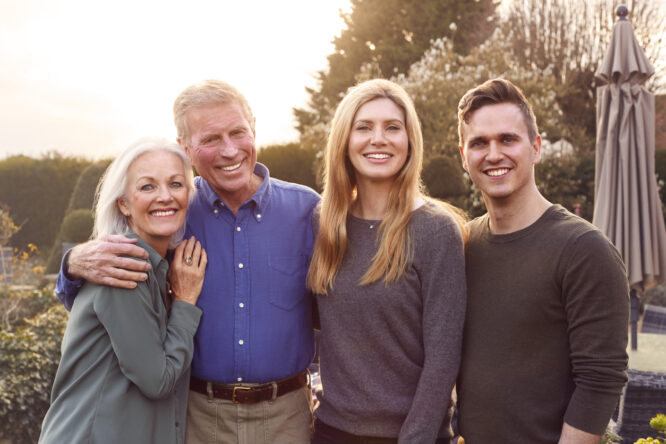When a narcissist drops you like a bad habit, it can leave you feeling disoriented, hollow, and like you’re somehow to blame.

That’s true even when you know deep down you were never the problem. They used you and drained you of everything they could possibly get from you, then discarded you like you never meant anything at all. You know it’s not your fault deep down, but part of you still feels terrible about it. Doing these things will help with it comes to finding your footing again, slowly, quietly, and without needing to explain your pain to anyone who never really listened in the first place.
1. Remind yourself it wasn’t real connection.

One of the hardest parts of being discarded is how suddenly it happens, like a switch flipped and you stopped existing. Of course, the truth is, what you shared wasn’t real emotional intimacy. It was conditional attention, based on how useful or validating you were to them.
That sting you feel isn’t just about the loss, either. It’s about realising they never saw you clearly to begin with. Once you accept that their version of “love” was transactional, it gets a little easier to stop blaming yourself for its sudden end.
2. Let yourself feel angry, even if it surprises you.

You might expect to feel sad, hurt, or even numb, but don’t be shocked if rage creeps in too. Anger is valid here. It shows that a part of you recognises what was unfair and emotionally unsafe about the whole experience. Letting yourself feel it doesn’t mean you’re bitter. It means you’re processing the shock of being used and discarded. That anger is part of reclaiming your voice after months or years of silencing your own needs.
3. Stop romanticising the good parts.

Your mind might keep circling back to the nice moments—the charm, the laughter, the attention. That’s normal, especially after being discarded. That being said, it’s important to remember that those moments were part of the manipulation, not separate from it.
You weren’t crazy for falling for the charm—that’s what narcissists do. The thing is, when you start putting the whole picture together, the illusion starts to fall apart. Seeing the full story helps you stop clinging to fragments that were never truly safe or real.
4. Cut off contact even if you want answers.

Wanting closure makes total sense. Sadly, with a narcissist, more contact rarely brings clarity—it usually brings confusion, self-doubt, or more emotional damage. They’re not wired to give closure. They’re wired to keep control.
Blocking them, muting their number, or stepping away from mutual spaces might feel extreme, but it’s often the only way to protect your energy. You don’t owe them another word. Your healing doesn’t need their permission.
5. Don’t internalise the discard as proof you’re unloveable.

Narcissists discard people for all kinds of reasons, and none of them have to do with your worth. Maybe you set a boundary, stopped being easy to manipulate, or simply weren’t feeding their ego anymore. That’s not failure; that’s self-preservation.
The discard says everything about their pattern and nothing about your value. Their lack of care or empathy is not a reflection of who you are. It’s a reflection of their limitations, not your shortcomings.
6. Ground yourself in small daily rituals.

After narcissistic discard, your nervous system is usually in overdrive. Your mind might race, your stomach might churn, and everything can feel foggy. That’s trauma, and it needs grounding, not constant analysis.
Focus on simple, steady routines. Drink your morning coffee in the same spot. Take a walk at the same time. These small rituals give your brain and body the kind of safety that person never did. They bring rhythm back to a world that suddenly feels upside down.
7. Let go of needing to prove your side of the story.

Narcissists often rewrite the narrative to make themselves look innocent and you look unstable. That urge to defend yourself, especially to mutual friends or family, is completely understandable. However, chasing that kind of validation can become another trap.
You don’t need to clear your name with everyone. The people who truly matter will notice the truth eventually, or already have. Your peace isn’t dependent on whether other people believe you. It’s something you can start reclaiming quietly, without a spotlight.
8. Expect emotional whiplash and don’t panic when it hits.

One minute you might feel relief. The next, total emptiness. Then anger. Then grief. This back-and-forth can feel like you’re losing your mind, but it’s actually a really normal response to being in—and then abruptly out of—a toxic dynamic. You were emotionally trained to respond to chaos. Now that the chaos is gone, your system doesn’t know what to do yet. Be gentle with yourself through the swings. They’ll even out over time, especially if you’re not fighting them.
9. Name what you ignored during the relationship.

Looking back, there were probably red flags you talked yourself out of noticing—things you excused, minimised, or tried to rationalise. That’s not weakness. That’s survival. When you care about someone, your brain wants to believe they care too. Now that you’re out of the fog, give yourself space to name what didn’t feel right, even if you didn’t have the words for it at the time. That clarity won’t undo the hurt, but it’ll help you rebuild trust in your own instincts.
10. Don’t interpret the silence as a clean break.

Just because they’ve gone quiet doesn’t mean they’re truly gone. Narcissists often circle back, not because they miss you, but because they want attention, control, or a second chance to prove they still have power. If they pop up again, it doesn’t mean your bond was special. It means they’re repeating a cycle. Recognising this helps you prepare, so you don’t get caught off guard or pulled back into the same emotional quicksand.
11. Be mindful of what you’re looking at online.

It’s tempting to stalk their social media, reread old messages, or even search for videos on narcissism to make sense of it all. While some info can be helpful, too much can keep you emotionally stuck.
Pay attention to how you feel after scrolling or researching. If you feel more anxious, more confused, or more frozen, it’s okay to step back. You don’t need to understand every detail to start moving forward. Peace often comes from tuning out, not digging deeper.
12. Get support from people who actually get it.

If you’ve tried to explain what happened to people who haven’t been through it, you might’ve got blank stares or unhelpful advice. Not everyone understands how subtle and damaging narcissistic relationships can be, but some people really do.
Whether it’s a trusted friend, a support group, or a therapist who specialises in trauma, surrounding yourself with people who get it makes healing feel less lonely. You deserve to be believed and supported without needing to over-explain.
13. Don’t rush the “bounce back” version of healing.

There’s pressure sometimes to come out of something hard looking stronger, wiser, and completely unbothered. Of course, real healing after a narcissist isn’t always pretty. It’s slow, messy, and not always visible from the outside. You don’t have to glow up overnight. You don’t have to act like it didn’t wreck you. Taking time doesn’t mean you’re stuck; it means you’re moving at your own pace. That’s what lasting healing actually looks like.
14. Remind yourself that being discarded isn’t the end of your story.

It might feel like they got the last word, like they walked away without consequences, while you’re left picking up the emotional pieces. Of course, their exit doesn’t define you, and it definitely doesn’t get to be the closing chapter of your story.
Your life didn’t end when they left. It began in a new way, one where you’re finally free to heal without being constantly torn down. That kind of peace, even if it comes slowly, is more powerful than anything they ever gave you.




